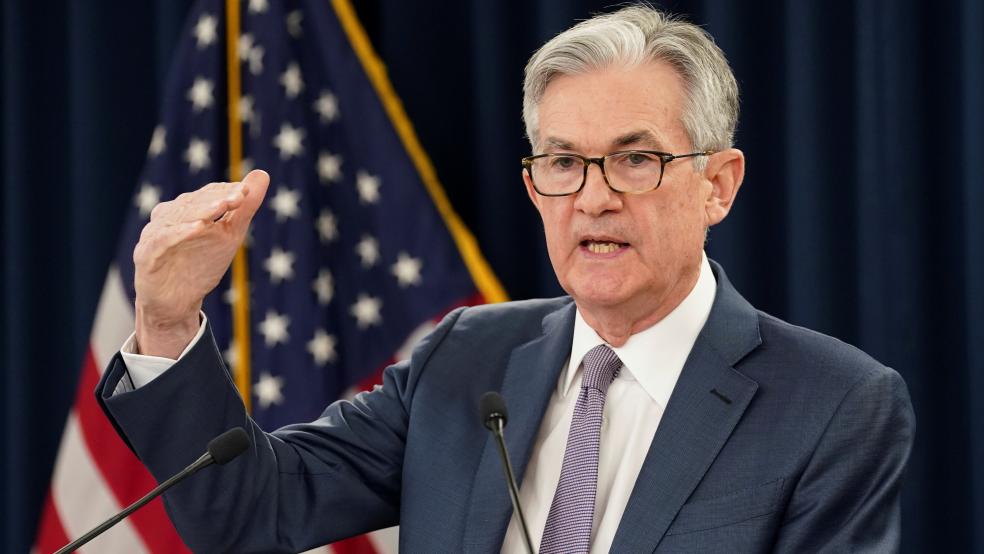With the U.S. economy still suffering from the lingering effects of the recession caused by the Covid-19 pandemic as well as a surge in inflation that has accompanied the reopening of businesses across the country, President Joe Biden on Monday said he would renominate Jerome Powell to lead the Federal Reserve for another term.
Biden also said he would nominate Fed governor Lael Brainard, who had been backed by prominent liberal Democrats for the top spot at the central bank, as vice chair of the central bank’s board of governors.
The nominations indicate that the Biden administration is sticking with its current approach to the economy as it seeks to balance support for post-recession growth in the labor market with rising concerns about rapidly escalating prices in many sectors of the economy.
“Why am I not picking fresh blood or taking the Fed in a different direction?” Biden asked in remarks at the White House. “Put directly, at this moment both of enormous potential and enormous uncertainty for our economy, we need stability and independence at the Federal Reserve.”
Balancing the dual mandate: In a statement, Biden said that Powell and Brainard have pushed the Fed to pay more attention to the second part of its dual mandate – maximum sustainable employment – along with its more typical focus on price stability.
Saying the pair had overseen “a landmark re-evaluation of the Federal Reserve’s objectives to refocus its mission on the needs of workers of all backgrounds,” Biden said they shared his administration’s goal of “ensuring that economic growth broadly benefits all workers.”
At the same time, inflation has surged to levels not seen in decades, worrying critics who have called for a more aggressive response by the Fed — possibly including an increase in interest rates, which the Fed has kept near zero since the pandemic began to encourage growth.
Although economists remain divided on the cause and expected duration of the current flurry of price hikes, many agree that raising rates could help restrain inflation, though likely at the cost of job growth. The U.S. labor market is still millions of jobs below where it was when the pandemic started in March 2020.
In comments at the White House, Powell said he remains focused on both aspects of the Fed’s mission. “We will use our tools both to support the economy and a strong labor market, and to prevent higher inflation from becoming entrenched,” he said.
A peace offering to critics on the left: Powell’s nomination was met with bipartisan expressions of support, but some liberals have charged that Powell, a Republican who was first tapped to lead the Fed by President Donald Trump, has been too easy on Wall Street and insufficiently attentive to issues including ethics, climate change and income inequality. Biden’s nomination of Brainard, who was pushed as a more progressive replacement for Powell, is seen by many as an effort to placate those critics. Sen. Elizabeth Warren (D-MA), who has criticized Powell as “a dangerous man,” said Monday that she will vote against his nomination but would support Brainard’s.
Biden hinted Monday that his future selections for Fed positions would please progressives. “While Jay and Lael bring continuity and stability to the Fed, my additions will bring new perspectives and new voices,” he said.
What’s next: Despite opposition from Warren and some other liberals, Powell appears to have an easy path to being confirmed again by the Senate. “I look forward to supporting his confirmation,” Sen. Pat Toomey (R-PA), the ranking Republican on the Banking Committee, said Monday.
Brainard, who would replace Richard Clarida as vice chair, is expected to face some level of resistance from Republicans concerned about her tough stance on bank regulation, though it’s not clear if it will be enough to derail her nomination.
Once in place, the Fed leaders will face some of the most difficult issues the bank has had to deal with in its 107-year history, with inflation — and the political price Biden could pay for it at the polls — at the top of the list.
The bank has started to taper its bond purchasing effort as it moves to withdraw emergency supports for the economy put in place during the pandemic. While interest rate hikes aren’t expected until midway through next year, the troubling persistence of inflation could increase pressure on the Fed to move faster, putting the central bank at the center of the ongoing battle over the fate of Biden’s broader agenda.



